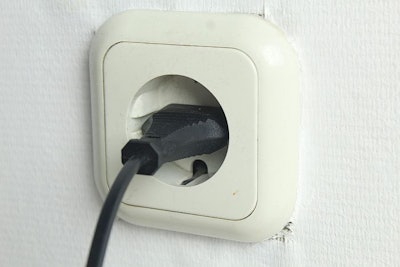
South Africa’s continuing energy crisis is affecting ever more aspects of life in the country, and creating ever greater problems for its citizens.
Without a constant electricity supply to power pumps, irrigated crops do not receive vital water, reports Bloomberg. Furthermore, Cape Town beachgoers have been warmed about sewage spills, and the nation’s food supply is being affected.
For the country’s poultry producers, the impacts are ramping up. Scheduled load shedding is leading to ever longer power cuts, sometimes of 10 hours duration. As a result, there are adverse effects on the operation of farms, slaughterhouses, and processing facilities.
Among the forecast consequences are chicken shortages as well as higher prices for consumers.
At the root of the problems is a program of essential maintenance by state electricity utility, Eskom. According to the company, it supplies more than 90% of the electricity used by a wide range of users in South Africa and the Southern African Development Community (SADC) region.
Eskom says that the rolling blackouts are necessary to prevent a total collapse of the grid.
With the issues expected to continue for at least another year, there is no end in sight to these challenges. The situation threatens the country’s food security and its economy.
Chicken shortages, higher prices forecast
Among the South African companies already reporting chicken shortages have been KFC franchises, reported BBC recently.
Recent record power cuts have caused the country’s poultry producers to cull almost 10 million chickens over a period of a few weeks, according to VOA News.
Most affected by the electricity interruptions in the poultry supply chain are the slaughterhouses, said Izaak Breytenbach, general manager of the South African Poultry Association (SAPA). Throughout a 24-hour day, they require power to operate a whole range of processes — from water baths and electric stunners to cut-up and refrigeration or freezing of the chicken products.
Without reliable power supplies, food safety may be at risk. Furthermore, job losses may follow in a country where the unemployment rate is already 33%, said Breytenbach.
The government recently announced an 18% hike in power prices this year, but it was unable to forecast when the power cuts will end.
Impacts on bird welfare, production costs
With power cut back by around 25%, a backlog of birds has built up on farms.
Among the less obvious effects of the power cuts are on chicken welfare and rising costs, according to a report in the latest edition of SAPA’s Poultry Bulletin.
Wouter de Wet, chief operating officer of poultry company, Rainbow, explained how the outages are impacting the firm.
“We slaughter 1.4 million chickens a week – 280,000 per day,” he said. “When we can’t slaughter, the birds are kept waiting in the holding area, which is equipped to ensure short-term comfort, not long-term well-being.”
When there is no power, the chickens cannot be fed, watered, or kept cool and ventilated.
Feeding so many birds for even one extra day soon adds dramatically to feed costs, hitting conversion efficiency. It also requires more diesel to keep ventilation systems operating and the growing birds cool.
Cost implications for poultry processors
While the power supply is more reliable at weekends, running the slaughterhouse on the additional days is not without problems. Among these, according to de Wit, are up to an additional 2 million rand (ZAR; US$115,000) in overtime payments, as well as reduced opportunities for workers to rest, and equipment to be properly maintained.
At the time of publication, Rainbow was discussing with Eskom the future coordination of load-shedding schedules for the firm’s plant in Worcester. De Wet said that the provincial government was assisting the company to cope with the power outages.
In December, South Africa’s other leading poultry producing company quantified its additional costs arising from supply issues. Astral Foods reported its additional costs of load shedding at ZAR126 million, and water supply interruptions at ZAR9 million.

















